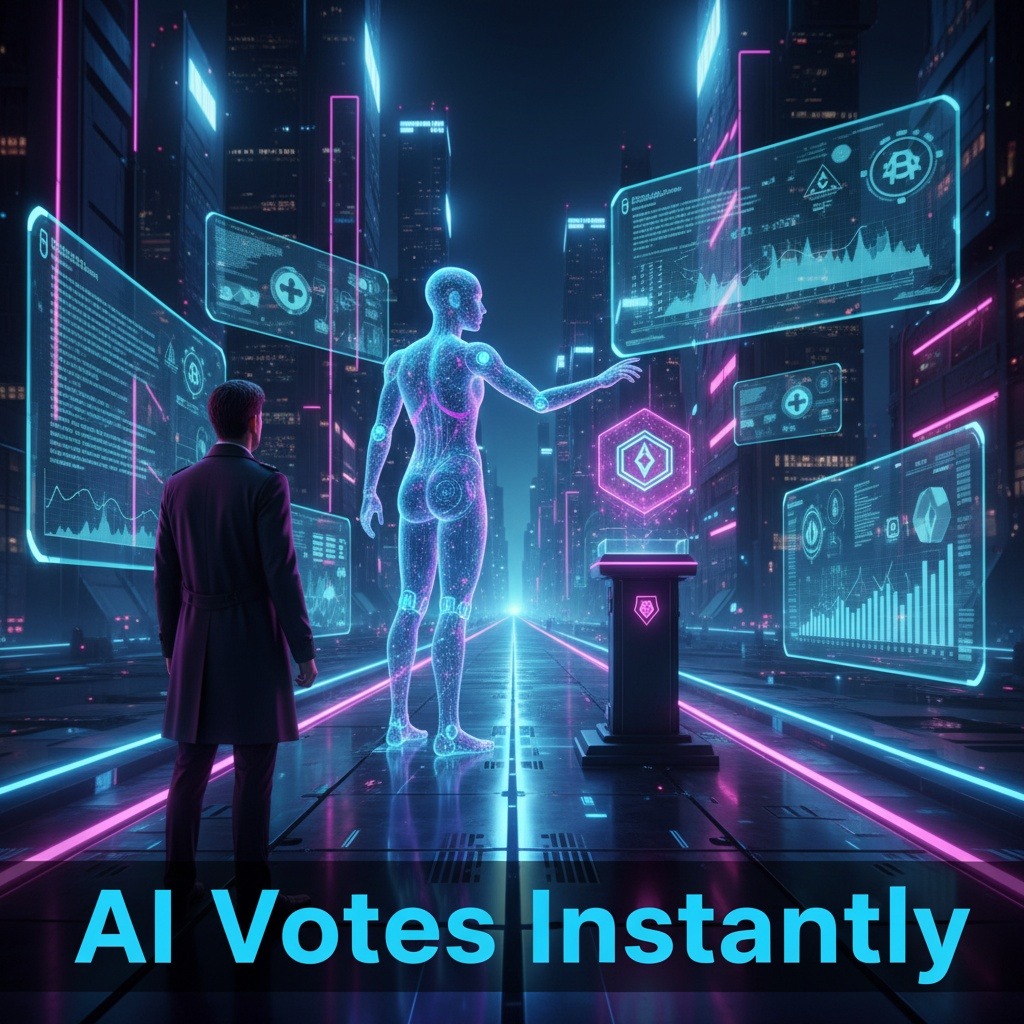The Near Foundation is making strides in the realm of decentralized governance by developing innovative artificial intelligence (AI) delegates designed to enhance voter participation within its decentralized autonomous organization (DAO). This initiative aims to combat the notably low participation rates that have plagued many blockchain protocols.
Lane Rettig, a prominent researcher at the Near Foundation who focuses on AI and governance, provided insights into the project during an interview at the Token2049 conference held in Singapore. He explained that the AI delegates, often referred to as “digital twins,” will learn individual preferences from users and engage in governance decisions accordingly. Rather than relying on individual members to cast their votes, these AI agents will act in alignment with the user’s views, streamlining the voting process into a rapid computational task.
“Our vision is to ultimately replace human agents with these digital twins to effectively address issues of voter apathy and improve participation,” Rettig stated. Current estimates suggest that voter turnout in DAOs varies between 15% and 25%, leading to significant concerns around centralization and ineffective decision-making. In extreme cases, low participation can open the door for governance attacks where malicious actors could manipulate proposals without adequate oversight from the community.
Despite the ambitious aim of implementing AI, Rettig emphasized the importance of retaining a human element within the process. He expressed his belief that a “human in the loop” is essential, particularly for critical decisions surrounding funding allocations and strategic changes. “There will always be categories of proposals where human judgment is necessary. The AI can suggest how one might vote based on learned preferences, but the ultimate decision should lie with the human voter,” he clarified.
The use of AI agents is not new to the crypto space. These technologies have found applications in creating Web3 solutions, managing token launches, and executing trading tasks autonomously. However, concerns regarding the implications of these systems remain, including potential security vulnerabilities and the risk of AI mismanagement of critical decisions.
Rettig explained that the AI delegates would be trained similarly to generative AI models like OpenAI’s ChatGPT, drawing from a user’s past interactions, voting tendencies, and even social media communications on platforms like Telegram and Discord to accurately understand their political inclinations and priorities. “When activated, the delegate will get to know you and continuously adapt to your preferences regarding project interests and fund management,” he added.
Estimates from the investment management firm VanEck suggest that the number of AI agents in the crypto sector exceeded 10,000 by the end of 2024, with projections indicating this number could skyrocket to over 1 million by 2025. However, the implications of deploying AI delegates prompt a call for robust oversight to mitigate risks such as incorrect decision-making or security breaches.
To ensure alignment with user values, the Near Foundation is adopting a verifiable model training approach, providing cryptographic proof of the training processes and data inputs of its AI delegates. This transparency aims to build trust and confidence among DAO members as they navigate the complexities of decentralized governance.
In reinforcing its commitment to community engagement, the Near Digital Collective, Near’s primary DAO, has already launched an AI tool named Pulse. This tool serves to gauge community sentiment, summarize important discussions from Discord, and highlight key content, thereby facilitating more informed decision-making among its members.



